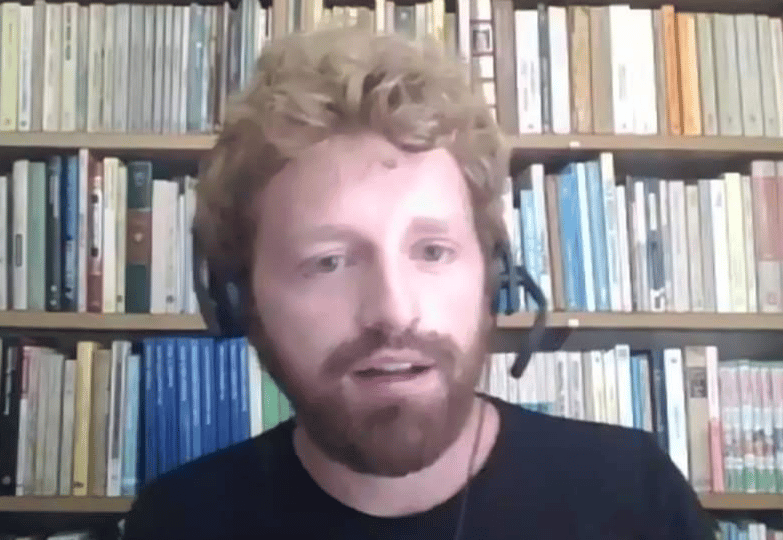Along with whistleblowers, human rights defenders are the best examples of how people can use their personal strength to expose dangers to communities, society and the environment. Whether fighting on behalf of political prisoners, minorities and children, or campaigning for safe food, water and housing, they are often the last line of defense against abuses by corrupt or uncaring elites.
Also like whistleblowers, many human rights defenders take on major risks – including threats to their own life. At least 635 were killed in more than 30 countries in 2019-20, according to Front Line Defenders. Global Witness estimated 1,922 environmental human rights defenders were slain in 52 countries from 2002-19.
Protecting vulnerable and poorly resourced activists in real life-or-death situations is proving to be increasingly difficult. Business and political elites fearful of losing their power and money are lashing out against them daily all around the world.
A new idea has emerged that would get endangered activists out of harm’s way quickly and with little bureaucracy. ProtectDefenders.eu, a consortium of 12 international human rights groups, has proposed a special EU visa program for human rights defenders.
ProtectDefenders’ Visa4HRD initiative seeks to close the gap between what the EU says and what it actually does. The EU issued guidelines on human rights defenders in 2004, yet it still lacks a specific mechanism for them to seek safety.
“Since the very beginning of our consortium, we have been confronted with the obstacles of accessing EU visas. It has been a realization since the very beginning of our work,” ProtectDefenders spokesperson Javier Roura Blanco told WNN. “The tipping point is that today the situation is not sustainable.”
Mirroring the concerns of ProtectDefenders, a recent report by the European Parliament suggested “the creation of a specific category in the EU visa regime for HRDs [human rights defenders] at risk.” The report cautioned that the EU’s current policy for emergency visas for activists “in grave danger…remains in limbo.”
Under the group’s innovative proposal, Roura Blanco explained that at-risk activists could apply for an EU visa while still living and working in their home countries. Then, if a situation arises in which they need to leave quickly, they could use the HRD visa to relocate – at least temporarily – to an EU country.
“Our key demand is access to visas as a protection tool. If defenders already have a visa, they will be more empowered to do their work in their community in a more secure and protected way,” Roura Blanco said. “They have strong ties to their communities. They will feel safer continuing to work in their countries, knowing they have an ‘ace’ to use if they need it.”
More Options – More Freedom
Up until now, the options for at-risk activists, journalists, artists and others have been limited to applying for three-month tourist visas, which may not be long enough to keep them safe before returning home, or applying for political asylum, which can be a drawn-out process subject to politicization between countries.
“Applying for asylum is a drastic decision. They don’t want to do this. They are not asylum seekers,” said Roura Blanco. “Most people don’t want to leave their country permanently.”
Qualifying for an HRD visa would carry a lower burden of proof than applying for asylum, which is a process guided by international treaties. It also is a more nimble solution, according to ProtectDefenders, because it would “enable defenders to consider the possibility to move in and out of their country in a way that allows them to manage risks and to continue to work in their communities, without forcing them to resort to permanent asylum.”
Roura Blanco notes that while there is no EU-wide system yet, some European countries have set up emergency programs. The most developed is in Spain, which offers an extendable one-year visa for human rights defenders and their family members. Roura Blanco said the program was set up about 20 years ago at the height of the conflict in Colombia, and that since its expansion hundreds of people have been assisted.
Other programs include:
- the Shelter City program of The Hague-based NGO Justice & Peace, which works with the Dutch Ministry of Foreign Affairs; people can obtain a three-month visa within three days
- Front Line Defenders’ program in Ireland, which allows for a three-month visa
- short-term visas for writers in Denmark, Finland, Norway and Sweden
- short-term visas for journalists and artists in Berlin
- waiving of visa fees for people to attend meetings of the UN Human Rights Council in Geneva
Fifty international NGOs have publicly endorsed ProtectDefenders’ initiative, including Amnesty International, Free Press Unlimited, Freedom House, Heinrich Böll Foundation and Pen International.
